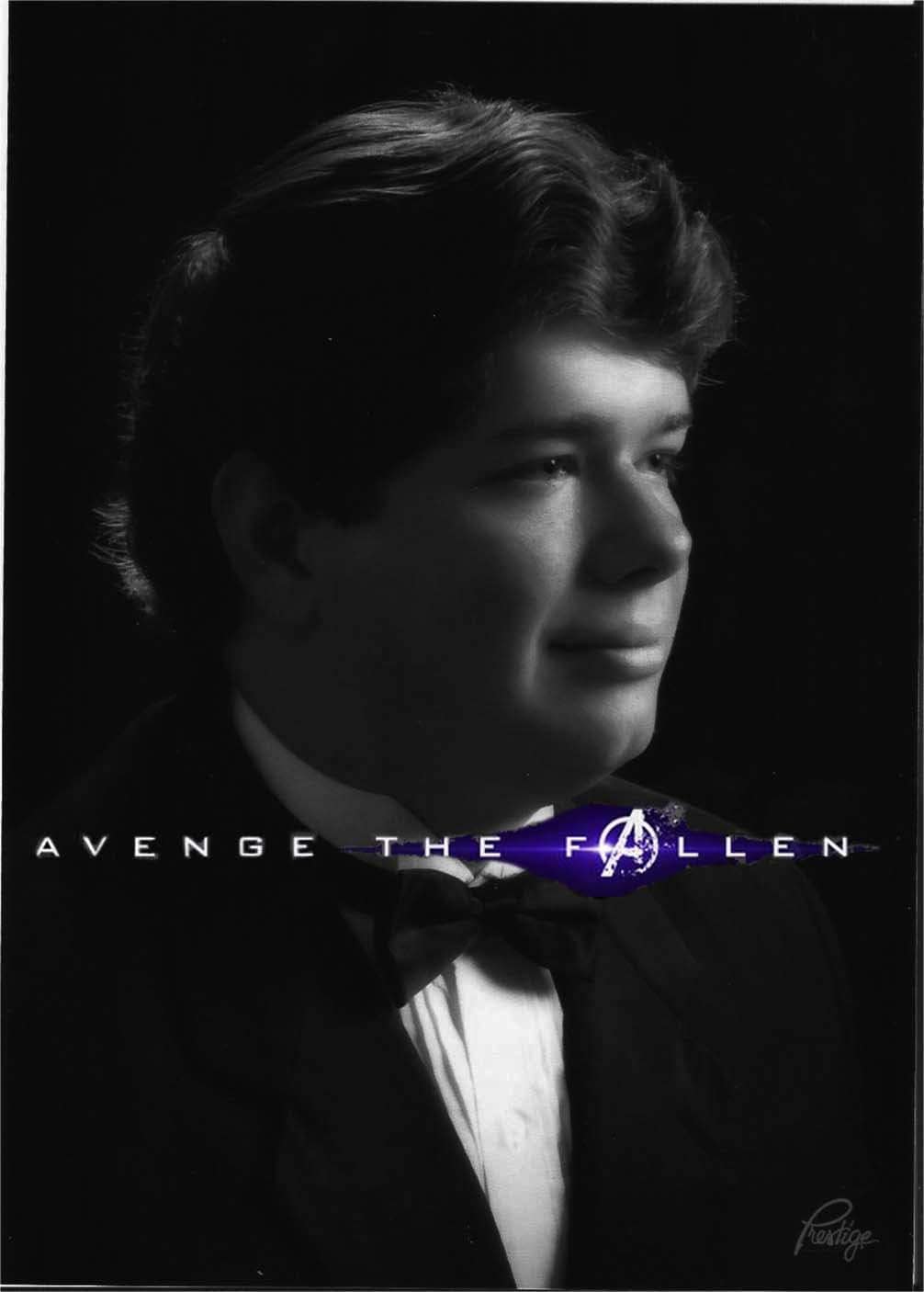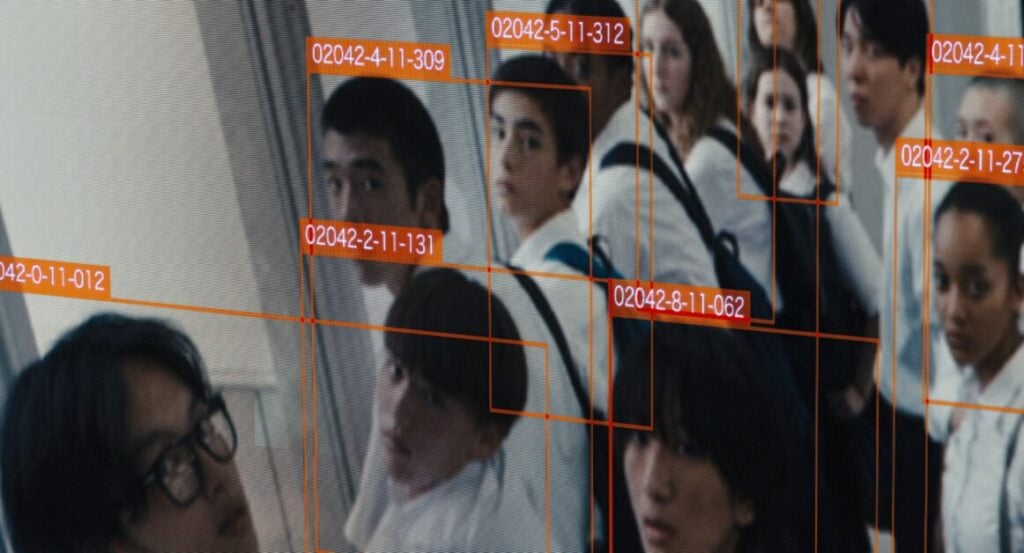Across the globe, people of all kinds are up in arms about the political landscape they find themselves in. Fascism, racism, and corrupt government officials can be found all over, not just here in America. International films give us a chance to see and experience what’s happening in other parts of the world, or at least perspectives on similar situations we encounter ourselves. Neo Sora’s astoundingly brilliant Happyend shows an all too familiar political climate through the lens of a teen comedy. Set in a near-future Tokyo, political unrest and fear of impending earthquakes plague adults and students alike. Protests are breaking out against the fascist government and many are seeking sources of distraction to find relief from the discourse.
The story centers on the relationship between two childhood best friends, Yuta (Hayato Kurihara) and Kou (Yukita Hidaka), as they navigate friendship through maturation in their final year of high school. The film opens with Yuta and Kou, alongside the rest of their friend group, sneaking in to see a DJ they admire in an underground club. Shortly after entering, the police come to shut down the party with Kou and the DJ being the only ones staying behind. Yuta tries to leave but reluctantly comes to be with Kou so as to not leave him behind. This opening scene foreshadows the tension between Yuta and Kou that rises higher and higher as the film unfolds. Kou is all about having fun at the expense of his reputation whereas Yuta’s rebellion ultimately submits to authority.

As our friends wander the city after the DJ’s show is cut short, they find themselves back at their school and discover a prime opportunity to prank their principal when he leaves his car unattended. This prank leads to a highly sophisticated surveillance system being installed at the school, using facial recognition technology to keep tabs on students and assign points to them when they do something wrong. Sora’s script expertly weaves this micro-surveillance tactic into the greater story of political unrest in Tokyo as a whole. Yuta meets a defiant girl in his class during the interrogation process and they connect on ideas of philosophy and politics, bringing Yuta closer to the protests happening all across the city.
This creates a split between Yuta and Kou, as Yuta sees Kou as childish for not caring about what’s happening outside of school and Kou’s refusal to take anything seriously. It’s difficult to not think of hard conversations had between family members and friends over the past few American election cycles, with some folks cutting others out of their lives because they won’t take a strong stance one way or the other. Yuta can’t stop thinking about the world’s massive problems, and Kou can’t think of anything past his own minuscule surroundings.

Happyend perfectly balances the two sides of this story, massive-scale political discourse and small-scale drama between friends, reminding us that one is not necessarily more important than the other. For young people like Yuta and Kou, every decision they make is the biggest thing in the world and no one else could possibly understand them. Standing up for what we believe in for the world at large matters. Maintaining friendships and caring for those around us matters, too. It’s hard to see sometimes and can bring a lot of strain on relationships. You think to yourself, “How could this person not care about these issues?” while the other is thinking “Why do they not care about me anymore?” It’s a vicious cycle of putting issues above people that happens far too often.
The genius of Happyend is how these themes are incorporated into one of the funniest films of the year. The quick, witty dialogue between Yuta, Kou, and the rest of their friends is laugh-out-loud funny, especially as they find new ways to antagonize the powers that be in their school. Despite the language difference, none of the fun is lost in translation. It’s refreshing to be reminded that films as funny as this can still contain thoughtful commentary on the world and handle complex ideas with grace.
Neo Sora just might have made the sleeper hit to come out of this year’s New York Film Festival, garnering plenty of positive buzz from those who had the fortune of seeing it. Unfortunately, this film was not selected as Japan’s entry for Best International Feature for this awards cycle which may lead to some difficulty in American distribution. Rest assured, it’s well worth the effort of seeking out once it becomes more widely available.
Happyend held its U.S. Premiere as part of the Main Slate section at the 2024 New York Film Festival.
Director: Neo Sora
Writer: Neo Sora
Rated: NR
Runtime: 113m
Neo Sora's HAPPYEND is the sleeper hit of NYFF 62, with complex and hilarious looks at activism, friendship, and the difficulty of growing up.
-
GVN Rating 8.5
-
User Ratings (0 Votes)
0

Proud owner of three movie passes. Met Harrison Ford at a local diner once. Based in Raleigh, NC.







1 Comment
I regret to report that you have seemingly flipped the names Yuta and Kou throughout in this review. Yuta is the carefree one. Kou is the one becoming more politically active.